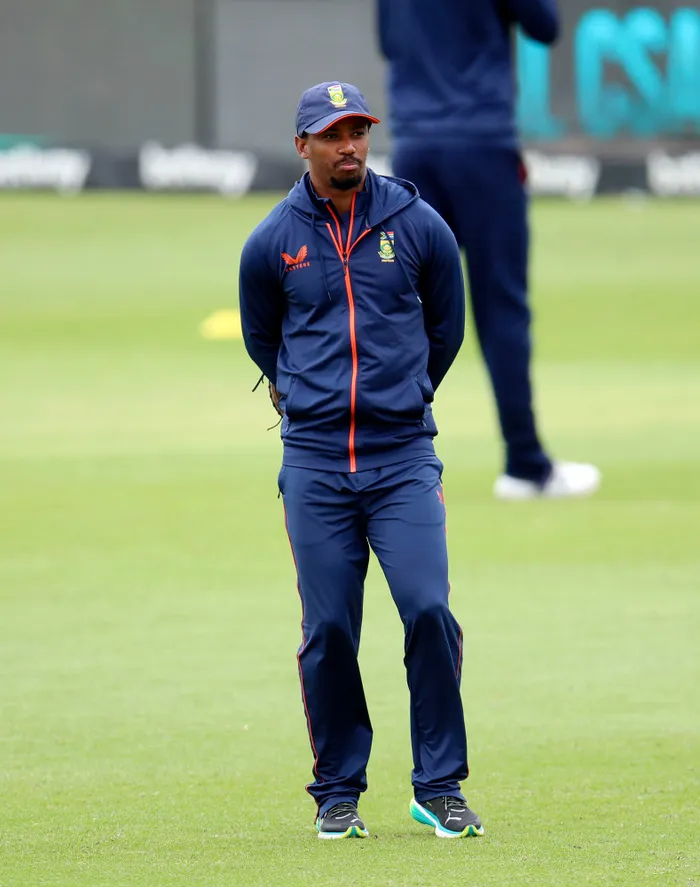Proteas gained valuable experience despite ODI series loss to Pakistan, says Gwavu
SA TOUR TO PAKISTAN

Proteas fielding coach Wandile Gwavu. Picture: Ntombela/BackpagePix
Image: Ntombela/BackpagePix
The Proteas’ journey to the 2027 World Cup took a major step forward, despite the visitors falling on the wrong side of 2-1 ODI series reversal to Pakistan, according to stand-in coach Wandile Gwavu.
The visitors were without virtually their entire first-choice ODI XI in Pakistan for the longer white-ball format due to the upcoming Test series in India. Even head coach Shukri Conrad and batting coach Ashwell Prince were back in Cape Town with Gwavu and bowling coach Piet Botha taking the reins.
They oversaw an inexperienced team, captained by Matthew Breetzke, level the series before a batting collapse in the final match allowed Pakistan to take the spoils 2-1.
The Proteas blooded four ODI debutants in Lhuan-dre Pretorius, Donovan Ferreira, Sinethemba Qeshile, who was unfortunately limited to just one game due to a finger injury, and Rubin Hermann during the series.
Pretorius made the most of his opportunities, helped by the fact that he could lean on senior partner Quinton de Kock at the other end, by finishing as the third highest run-scorer in the series with 142 runs at an average of 47.33.
“Batting conditions were more challenging than we expected,” Gwavu said, after the series defeat.
“There will be a lot of take-aways for the young players. They learned a couple of things on how to play spin, reverse-swinging wickets and pitches that played low and slow.”
The third ODI certainly. though, exposed the inexperienced middle-order as the Proteas slipped from 87/1 to 143 all out in just 37.5 overs – the last nine wickets falling for a paltry 56 runs.
Pakistan’s young leg-spinner Abrar Ahmed was the chief tormentor during this period, claiming career-best figures of 4/27. He was ably supported by fellow spinners Salman Ahmed (2/18) and Mohammed Nawaz (2/31).
Gwavu feels this is all part of the growing pains for a young batting line-up in foreign conditions.
“It was spinning quite a lot. Pakistani bowlers asked the right questions. They were more accurate,” he said.
“They were hitting the stumps more often and asking a lot of questions of us. I think the conditions more than the lack of playing experience worked against us.
“If you put us on the second wicket, then I don’t think that would have been the conversation. We felt it would get more difficult, which did happen, but we didn’t have enough runs on the board.
“Lack of experience does play a part but playing in these types of conditions that we are not used to definitely does play a part, so when we come back I’m sure we will play much better than we did in the last match.”
Related Topics: